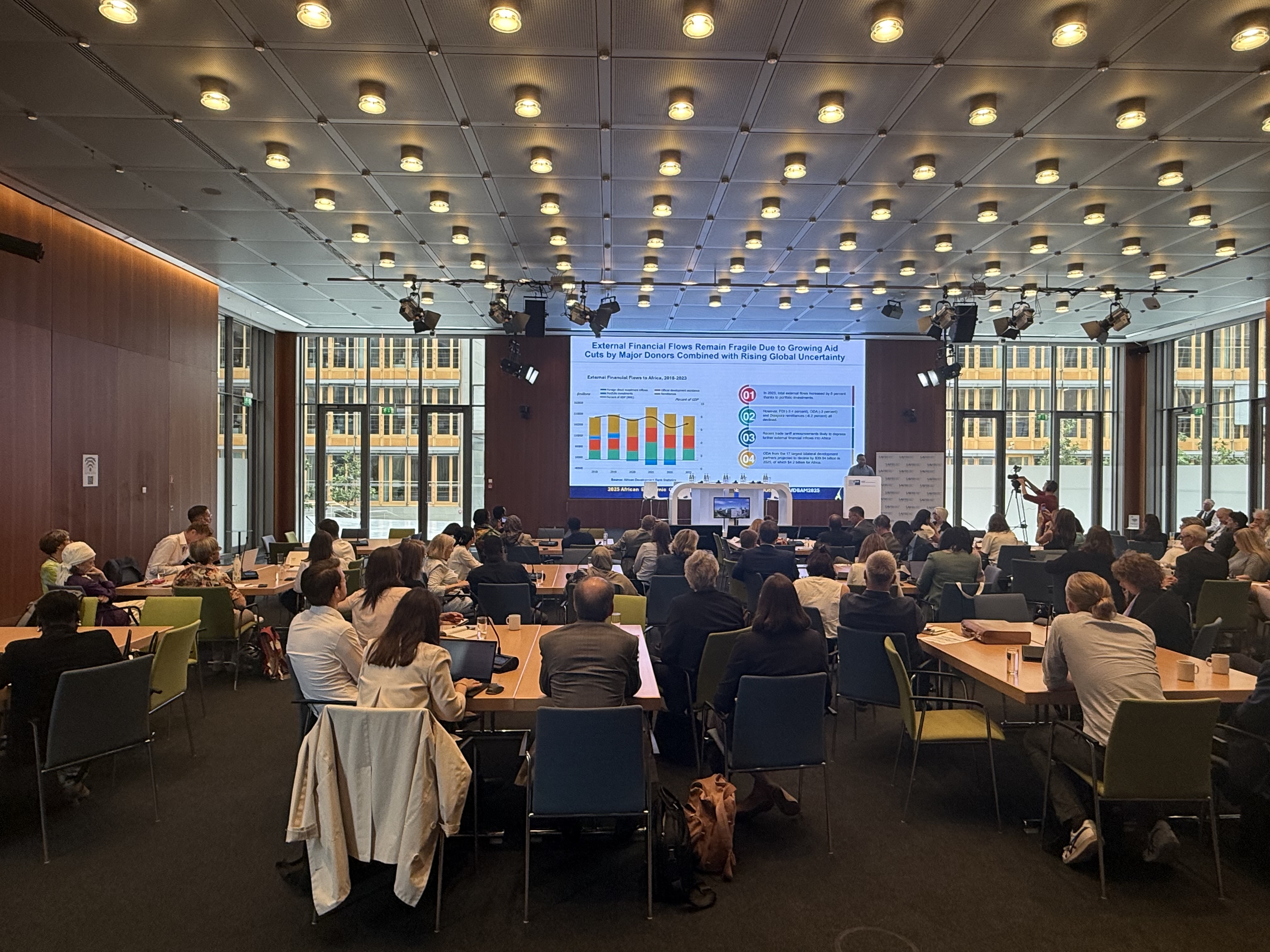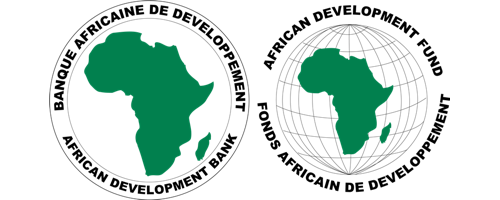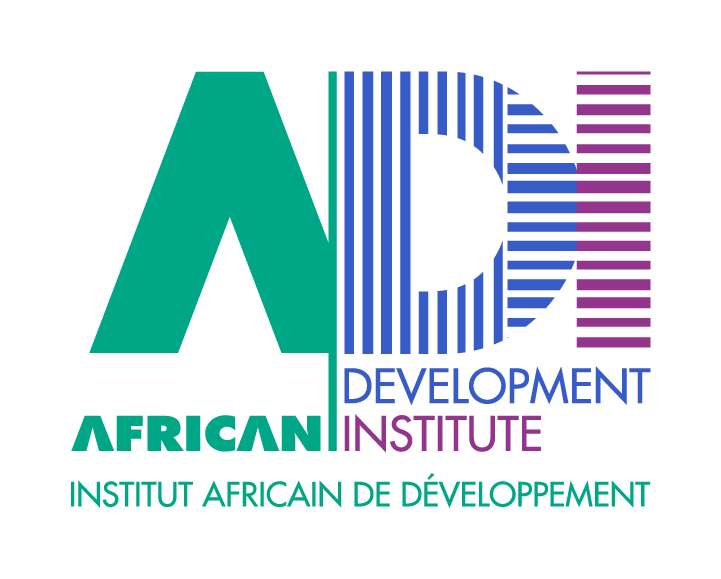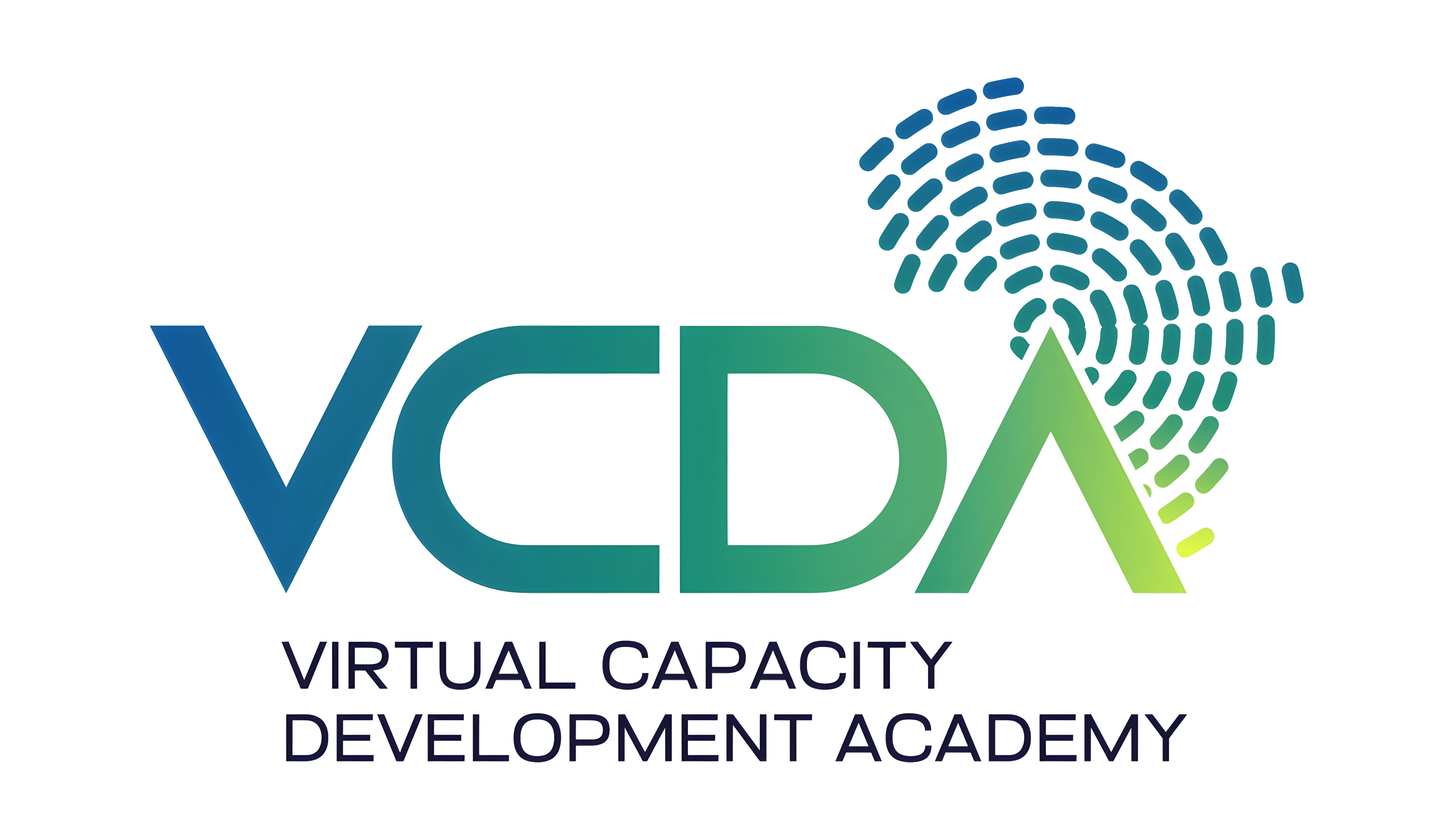At the invitation of Mr. Martin Kipping, Executive Director representing Germany, Luxembourg, Portugal, and Switzerland at the African Development Bank Group, a high-level delegation led by Prof. Kevin Chika Urama, the Chief Economist and Vice President, traveled to Berlin from 25 to 27 June 2025 to present the findings of the Bank's 2025 African Economic Outlook Report (AEO, 2025) on "Making Africa's Capital Work Better for Africa's Development" to German public and private sector leaders. The delegation included Ms. Hassatou N'Sele, Vice President for Finance and Chief Financial Officer (CFO). The mission aimed to strengthen German engagement with Africa.
The mission also included bilateral meetings between the Bank’s delegation and German officials, panel discussions and roundtable policy dialogues with senior officials from the Federal Ministry for Economic Cooperation and Development (BMZ) of Germany, the Federal Chancellery, and the Konrad Adenauer Foundation. The delegation also engaged with representatives of the private sector, academia, and civil society organizations. Prof. Urama gave a media interview on financing Africa’s development in a shifting global context to Africa-Table Media, a leading media outlet for German investors, businesses and politicians with a focus on Africa.
Participants welcomed the findings of the 2025 AEO report, describing them as apt and very timely given the ongoing geopolitical tensions, trade and tariff wars, and the declining external financial flows reflecting the changing global aid landscape. High-level representatives from the German Federal Ministry for Economic Cooperation and Development and the private sector expressed appreciation for the quality, relevance, and timeliness of the report and its policy recommendations in informing their strategies for strengthening partnerships with the Bank and engagement with Africa’s public and private sector. They also highlighted the implications of the report’s findings for the use of Official Development Assistance (ODA) to optimize the impacts on Sustainable Development Goals in Africa.
The need for strengthening investments in soft infrastructure—knowledge and institutional governance capacity of countries—was identified as critical for de-risking public sector-related market risks and enhancing private sector participation in African countries. This was also underscored by Prof. Urama in his interview, noting “We should focus on the soft factors to secure the political environment, the market environment, and the public policy space, thus facilitating the private sector's entry—rather than using ODA funds for physical infrastructure.” German officials acknowledged the importance of better capitalization of multilateral development banks (MDBs) to enable them to scale up concessional financing and grants, accelerating progress toward achievement of SDGs in Africa.
German private sector leaders emphasized the need for African countries to scale up efforts to address the real public sector risks that hinder the ease of entry and exit by the private sector in African markets. Recurrent challenges cited included currency devaluation and exchange rate volatility, unclear and inconsistent regulatory environments, weak institutional governance capacity, and lack of transparency. These challenges require continued concerted efforts in Regional Member Countries (RMCs).
The mission concluded with Germany's signature reaffirming its commitment to the seventeenth replenishment of the African Development Fund (ADF-17), representing a unique opportunity for the international community to invest in Africa's future. As Prof. Urama noted in his interview with Africa-Table Media, 'Germany has a key role to play here: Since 1983, Germany has been one of the ADF's largest supporters. A continued strong commitment to replenishing this fund would be a significant contribution to securing development progress in fragile African economies.'" The engagement provided valuable opportunities for the Bank to conduct evidence-based policy dialogue on Africa's economic outlook and opportunities for public and private sector investments toward shared prosperity in Africa.



